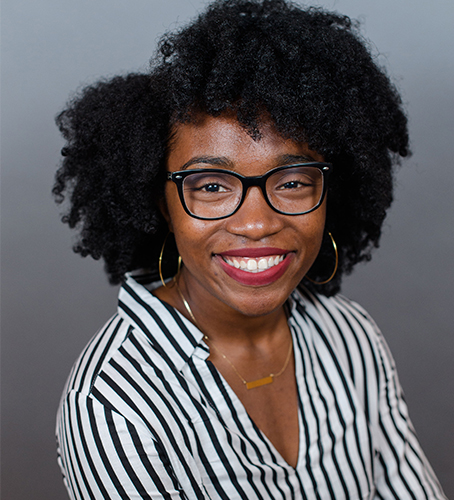Shontell White
Ph.D. in Counselor Education and Supervision

School Psychology and Counselor Education
- 2024, William & Mary, Doctor of Philosophy, Counselor Education and Supervision
- 2019, University of Virginia, Master of Education, Counselor Education
- 2017, University of Virginia, Bachelor of Science, Youth and Social Innovation
What kind of educational and professional experiences did you have prior to beginning this degree?
Prior to starting this program, I was a high school counselor in Manassas, Virginia.
As a student pursuing a doctorate in Counselor Education, why did you choose this field, and what motivates you in this work?
I loved being a school counselor because I got to see growth in my students each day. I loved the light moment that often occurred when students realized they were capable of solving their own problems and being able to support them through the use of my counseling skills and techniques along this journey. I'm motivated by the belief that all students deserve a skillful, caring and genuine school counselor. The reality is that for many students in public education, more specifically for many Black and brown students, a strong relationship with their school counselor, may be the only access they have to a mental health professional. As this first point of counseling contact for many, school counselors have the ability to provide timely interventions while also debunking many cultural stigmas and myths about the process of counseling. I chose to pursue a Ph.D. in counselor education because I want to be a part of raising up the next generation of school counselor leaders within schools.
What do you hope to be doing after graduation? In 10 or 15 years?
After graduation, I can see myself working as a counselor education faculty member at a university where I hope to pursue research related to how school counselors support Black students. I can also envision myself working for a school system supporting the development of school counselors and issues related to equity and inclusion. I won't cancel out the possibility of practicing as a school counselor again one day either! At this point, all of the doors are very much open.
Why did you choose to apply to William & Mary and specifically to this program? What sets this degree program apart from those offered at other colleges?
I chose the Counselor Education program at William & Mary because of the dynamic faculty members who I get to learn from each day. As much as they are teaching me, they are also modeling to me how the work that I may do in the future is done. I'm grateful for the opportunity to be advised by Dr. Natoya Haskins, who truly inspires me to pursue my passions and to explore new, uncharted interests each day. My program is unique because of its small, cohort model. There are only three other students in my cohort, so all of the educational experiences have been created to meet each of our needs. Another benefit of our small cohort is the potential to develop tightly knit relationships with faculty and peers who will be one day be colleagues.
What has been the most influential experience you've had so far in your program?
I'm at the beginning of my program, so it's still very early in my journey! However, the most impactful experiences so far have been some of the growing pains that come along with doing something that you've never done before! I've been stretched and challenged academically and emotionally, and it's a great feeling to know that I can lean on my peers and faculty members for encouragement, support and reminders about why I'm here.